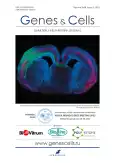The role of mirror system in influencing the valence evaluation of words: a TMS study
- Authors: Behera S.K.1, Nieto Doval C.M.1, Lyusin D.V.1,2, Feurra M.1
-
Affiliations:
- National Research University Higher School of Economics
- Institute of Psychology, Russian Academy of Sciences
- Issue: Vol 18, No 4 (2023)
- Pages: 598-601
- Section: Conference proceedings
- URL: https://journal-vniispk.ru/2313-1829/article/view/256281
- DOI: https://doi.org/10.17816/gc623324
- ID: 256281
Cite item
Abstract
The mirror neuron system (MNS) has been a captivating area of research since its discovery in macaque monkeys [1]. Researchers have established the role and presence of the human auditory mirror system in both empathy [2] and musical creativity [3]. As well, the mirror system allows to learn new behaviors by observation, facilitating knowledge acquisition and action understanding. In addition, research has indicated the influence of stimulus valence on the human MNS [4]. The human brain is sensitive to the positive valence of words, and this reactivity may vary with the strength of the valence compared to negative words. Additionally, it can perceive differences in valence for negative stimuli and words. However, what about emotional words that are auditory? Do these words’ valence, whether positive, negative, or neutral, impact auditory mirror neurons and cortical excitability? The study examines how auditory words of different valences affect the MNS and cortical activity. This novel approach uses auditory stimuli to examine the role of mirror neurons in neuromodulation through a transcranial magnetic stimulation (TMS) protocol, which has not been done in previous investigations. The results of this study suggest that both positive and negative words will induce greater excitability [4], as evidenced by motor evoked potentials. The results of this study will have broad applications. Firstly, it will offer a new contribution to the investigation of mirror neurons through TMS protocol. Secondly, inferences can be drawn and applied in the field of therapeutics, where language is used as a tool to mediate the process. In general, it will increase personal awareness of language in daily communication, leading to an enhanced communication process. Furthermore, the study’s findings imply the existence of auditory mirror neurons and their pivotal role in comprehending the emotional valence of different words, thereby influencing our feelings. This will advance our understanding of the human brain and empower us to make informed decisions.
The study is being conducted with the HSE Automated system for non-invasive brain stimulation, which allows for simultaneous recording of brain activity and eye movement.
Full Text
The mirror neuron system (MNS) has been a captivating area of research since its discovery in macaque monkeys [1]. Researchers have established the role and presence of the human auditory mirror system in both empathy [2] and musical creativity [3]. As well, the mirror system allows to learn new behaviors by observation, facilitating knowledge acquisition and action understanding. In addition, research has indicated the influence of stimulus valence on the human MNS [4]. The human brain is sensitive to the positive valence of words, and this reactivity may vary with the strength of the valence compared to negative words. Additionally, it can perceive differences in valence for negative stimuli and words. However, what about emotional words that are auditory? Do these words’ valence, whether positive, negative, or neutral, impact auditory mirror neurons and cortical excitability? The study examines how auditory words of different valences affect the MNS and cortical activity. This novel approach uses auditory stimuli to examine the role of mirror neurons in neuromodulation through a transcranial magnetic stimulation (TMS) protocol, which has not been done in previous investigations. The results of this study suggest that both positive and negative words will induce greater excitability [4], as evidenced by motor evoked potentials. The results of this study will have broad applications. Firstly, it will offer a new contribution to the investigation of mirror neurons through TMS protocol. Secondly, inferences can be drawn and applied in the field of therapeutics, where language is used as a tool to mediate the process. In general, it will increase personal awareness of language in daily communication, leading to an enhanced communication process. Furthermore, the study’s findings imply the existence of auditory mirror neurons and their pivotal role in comprehending the emotional valence of different words, thereby influencing our feelings. This will advance our understanding of the human brain and empower us to make informed decisions.
The study is being conducted with the HSE Automated system for non-invasive brain stimulation, which allows for simultaneous recording of brain activity and eye movement.
ADDITIONAL INFORMATION
Funding sources. It is financially supported by the Ministry of Science and Higher Education of the Russian Federation, grant No. 075-15-2021-673.
About the authors
S. K. Behera
National Research University Higher School of Economics
Author for correspondence.
Email: sbekhera@edu.hse.ru
Russian Federation, Moscow
C. M. Nieto Doval
National Research University Higher School of Economics
Email: sbekhera@edu.hse.ru
Russian Federation, Moscow
D. V. Lyusin
National Research University Higher School of Economics; Institute of Psychology, Russian Academy of Sciences
Email: sbekhera@edu.hse.ru
Russian Federation, Moscow; Moscow
M. Feurra
National Research University Higher School of Economics
Email: sbekhera@edu.hse.ru
Russian Federation, Moscow
References
- Di Pellegrino G, Fadiga L, Fogassi L, et al. Understanding motor events: a neurophysiological study. Experimental brain research. 1992;91(1):176–180. doi: 10.1007/BF00230027
- Gazzola V, Aziz-Zadeh L, Keysers C. Empathy and the somatotopic auditory mirror system in humans. Current biology. 2006;16(18):1824–1829. doi: 10.1016/j.cub.2006.07.072
- Colombo B, Anctil R, Balzarotti S, et al. The Role of the Mirror System in Influencing Musicians’ Evaluation of Musical Creativity: A tDCS Study. Frontiers in Neuroscience. 2021;15:624653. doi: 10.3389/fnins.2021.624653
- Hill AT, Fitzgibbon BM, Arnold SL, et al. Modulation of putative mirror neuron activity by both positively and negatively valenced affective stimuli: a TMS study. Behavioural brain research. 2013;249:116–123. doi: 10.1016/j.bbr.2013.04.027
- Received: 15.05.2023 Accepted: 26.11.2023 Published online: 20.01.2024
- Yang J, Zeng J, Meng X, et al. Positive words or negative words: Whose valence strength are we more sensitive to? Brain research. 2013;1533:91–104. doi: 10.1016/j.brainres.2013.08.020
Supplementary files









